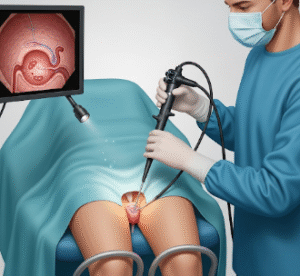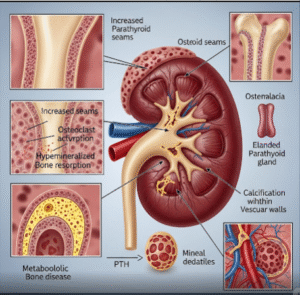Overview
Myalgia, commonly known as muscle pain, refers to discomfort, soreness, or aching in one or more muscles of the body. It is one of the most frequent complaints in medical practice, affecting people of all ages and activity levels. Muscle pain can be acute, often resulting from injury or overuse, or chronic, stemming from systemic conditions or inflammatory disorders.
In Korea, management of myalgia involves orthopedic care, rehabilitation, pain clinics, and integrative medicine, providing diagnostic evaluation, treatment, and preventive strategies to relieve discomfort and restore mobility.
Key Facts
➤ Myalgia can be localized or widespread, affecting specific muscles or the whole body.
➤ Causes range from muscle strain, overuse, or injury to infections, metabolic disorders, or autoimmune conditions.
➤ Commonly associated symptoms include stiffness, weakness, swelling, or fatigue.
➤ Early assessment is essential to identify underlying causes, especially if symptoms are persistent.
➤ In Korea, myalgia is managed through physical therapy, medication, and multidisciplinary care.
What is Myalgia?
Myalgia occurs when muscle fibers are irritated, inflamed, or damaged, resulting in pain or discomfort. The condition may involve:
➔ Acute muscle pain – usually sudden onset, often related to trauma, exercise, or strain.
➔ Chronic muscle pain – persistent pain associated with systemic disorders such as fibromyalgia, autoimmune diseases, or metabolic imbalances.
➔ Localized vs. generalized pain – isolated to one area (e.g., calf or shoulder) or affecting multiple muscles across the body.
The pain may feel:
- Dull, aching, or throbbing (common in chronic myalgia).
- Sharp or stabbing (often in acute injuries).
- Tenderness or tightness in the affected muscle.
Symptoms Related to Myalgia
➤ Muscle soreness, stiffness, or tenderness.
➤ Weakness or fatigue in affected muscles.
➤ Pain worsened by movement, stretching, or pressure.
➤ Swelling or redness if inflammation or injury is present.
➤ Associated systemic symptoms in cases of infection or autoimmune disease, such as fever, fatigue, or malaise.
➤ In chronic conditions, widespread pain and sleep disturbances may occur.
Causes / Possible Causes
Myalgia can arise from mechanical, infectious, metabolic, or systemic conditions:
Mechanical Causes
➤ Muscle strain or overuse from exercise, heavy lifting, or repetitive movements.
➤ Poor posture causing chronic tension and discomfort.
➤ Trauma, including falls, accidents, or direct blows to muscles.
Infectious Causes
➤ Viral infections such as influenza, COVID-19, or other viral illnesses.
➤ Bacterial infections causing localized or systemic muscle inflammation.
Metabolic and Systemic Causes
➤ Electrolyte imbalances (low potassium, calcium, or magnesium).
➤ Endocrine disorders such as thyroid dysfunction or diabetes.
➤ Autoimmune or inflammatory diseases, e.g., fibromyalgia, polymyositis, or lupus.
Other Contributing Factors
➤ Medications like statins or corticosteroids that can affect muscle tissue.
➤ Chronic stress or poor sleep contributing to muscle tension and discomfort.
➤ Nutritional deficiencies affecting muscle function.
Risk Factors
➤ Older age with age-related muscle degeneration (sarcopenia).
➤ Sedentary lifestyle or prolonged immobilization.
➤ Intense physical activity without proper warm-up or conditioning.
➤ History of musculoskeletal injuries or repetitive strain.
➤ Chronic illness, autoimmune disorders, or metabolic imbalances.
➤ Certain medications that affect muscle integrity.
Complications
If untreated, myalgia may result in:
➤ Reduced mobility and flexibility, affecting daily activities.
➤ Chronic pain leading to sleep disturbances and fatigue.
➤ Secondary muscle weakness or atrophy from disuse.
➤ Emotional distress, including anxiety or depression.
➤ Exacerbation of underlying medical conditions if the root cause is not addressed.
When Should I See My Doctor?
Seek medical attention if:
➤ Muscle pain is severe, persistent, or worsening.
➤ Associated with swelling, redness, or warmth.
➤ Accompanied by fever, unexplained weight loss, or systemic symptoms.
➤ You experience weakness, numbness, or tingling in addition to pain.
➤ Pain interferes with daily activities, work, or sleep.
➤ There is a history of trauma or injury leading to persistent discomfort.
Prompt assessment ensures early diagnosis and management of underlying causes, preventing complications.
Care and Treatment
Home Care and Lifestyle Measures
➤ Rest and avoid activities that exacerbate pain.
➤ Apply ice or heat therapy to reduce inflammation and relieve soreness.
➤ Gentle stretching and mobility exercises to maintain flexibility.
➤ Stay hydrated and maintain balanced nutrition to support muscle health.
➤ Over-the-counter pain relievers or anti-inflammatory medications as needed.
Medical Treatments
➤ Prescription pain medications, muscle relaxants, or anti-inflammatory drugs.
➤ Physical therapy for strengthening, flexibility, and posture correction.
➤ Treatment of underlying systemic or inflammatory conditions.
➤ In severe cases, injections or surgical interventions may be considered.
Preventive Measures
➤ Regular exercise with proper warm-up and stretching.
➤ Ergonomic adjustments to prevent repetitive strain injuries.
➤ Adequate sleep and stress management to reduce muscle tension.
➤ Monitor and correct nutritional deficiencies affecting muscle function.
Treatment Options in Korea
Korean healthcare facilities provide comprehensive management for myalgia:
Diagnostic Services
➤ Blood tests for electrolytes, inflammatory markers, and autoimmune indicators.
➤ Imaging (X-ray, MRI, ultrasound) for muscle, joint, or soft tissue assessment.
➤ Functional evaluations by physical therapists or rehabilitation specialists.
Therapies and Supportive Care
➤ Physical therapy and rehabilitation programs for muscle strengthening.
➤ Pain management through medications, injections, or manual therapies.
➤ Acupuncture and traditional Korean medicine treatments for pain relief.
➤ Multidisciplinary approach involving orthopedics, neurology, and rehabilitation medicine.
➤ Lifestyle counseling on exercise, posture, and nutrition to prevent recurrence.
✅ In summary: Myalgia is muscle pain that can arise from injury, overuse, infection, metabolic disorders, or systemic conditions. While often benign, persistent or severe muscle pain warrants medical evaluation. In Korea, patients benefit from advanced diagnostic tools, physical therapy, pain management, and integrative medicine, allowing effective symptom relief and restoration of normal function.













